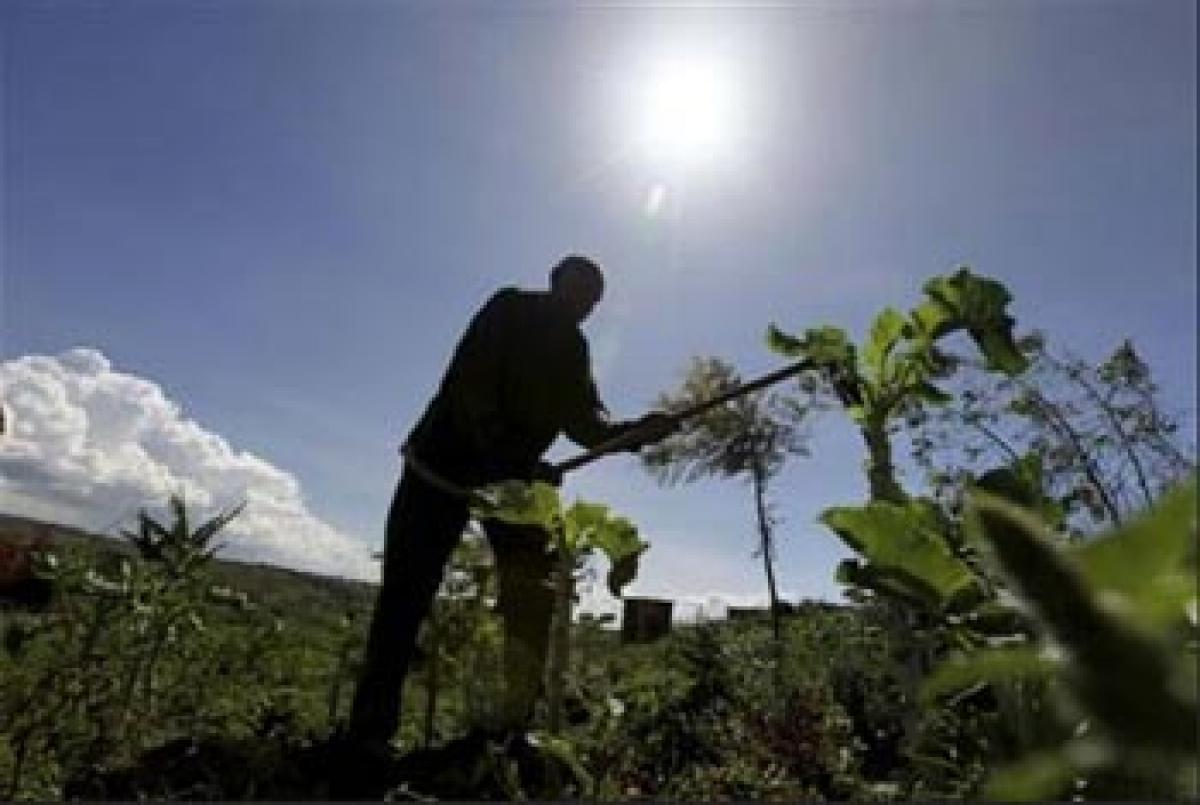Live
- vivo unveils X200 series of mobiles
- Sensex, Nifty stage a surprise recovery
- Govt commits to tackling maternal healthcare, deaths
- Capex to touch Rs 11.11-trn target this fiscal
- HCLTech launches TechBee
- Industrial growth recovery expected in H2
- No arrests made yet, says Police Commissioner
- Bhupalapally: 22 selected for kabaddi tournament
- Safiya awarded PhD
- School for brick kiln workers’ children opens
Just In

Agriculture Minister Radha Mohan Singh\'s call earlier this month asking Indian companies to produce pulses and oilseeds in Africa to meet the country\'s production shortfall may have emphasised the need to diversify agriculture.
New Delhi : Agriculture Minister Radha Mohan Singh's call earlier this month asking Indian companies to produce pulses and oilseeds in Africa to meet the country's production shortfall may have emphasised the need to diversify agriculture.
But it also focusses attention on the lesser known and controversial operations of those who did acquire land in the 54-nation continent at a time when land acquisition was a hugely sensitive subject at home.
Is the Indian dream of bountiful food products at cheap prices from Africa souring? It may seem so. "Foreign investors need to tread carefully and be sensitive to the needs of the local population when acquiring land in Africa," Alok Dikshit of Zambia-based Export Trading Company said at the India-Africa Agribusiness Forum in Delhi organised earlier this month by industry chamber FICCI.
The concern is provoked by the behaviour of foreign companies in Africa, said Dikshit, who has been working in the continent for over a decade. "As we know from our Indian experience, land acquisition has to go with proper rehabilitation of the displaced, which Indian companies in Africa have, sadly, a poor record of," Dikshit told IANS. A global initiative called Land Matrix ranks India as one of the top ten investors in land overseas.
In Africa, India is the biggest investor in land in Ethiopia, where Indian companies account for nearly 70 per cent of the land acquired by foreigners after 2008. Perhaps some of the dampening of initial enthusiasm for foreign capital in Africa also made Indian farmers realise that it may not be the promised land they thought it to be.
Many of them have returned to India after having been enticed to Africa by attractive road shows held by Indian companies which had bought large tracts of land. Local media recently reported the case of 50 farmers from Punjab who took land on lease in Ethiopia for around Rs 25 lakh but had to return within the year when faced with several challenges.
Their land needed water, but there were a few irrigation facilities and diesel for tractors was available only long distances away from the farms. Besides, they were faced with the poor purchasing power of the locals. "In Punjab, the average rate of land is Rs 30-35 lakh an acre.
This goes up to around Rs 1 crore if you are buying land near the city. As compared to this, in Ethiopia we got 2,500 acres of land for an investment of around Rs 25 lakh," said Baljinder Singh, who has returned to Amritsar.
The scramble for land by other countries in Africa was sparked by the global food price crises during 2008-09, when prices of commodities like wheat soared 130 per cent in a year and the UN Food and Agriculture Organisation's food price index shot up by 40 per cent.
India's response to soften the impact of the food price crisis resulted in Indian firms acquiring 6,00,000 hectares of land in Ethiopia, for instance. .
The World Bank stated that over 80 Indian companies had invested around $2.5 billion in buying or leasing huge plantations in Ethiopia, Kenya, Madagascar, Senegal and Mozambique to grow foodgrains and other cash crops for the Indian market.
This large enterprise has been accompanied by accusations against Indian companies of indulging in environmental damage as well as complaints from locals about losing access to grazing land and water due to the foreign farm projects.
By Biswajit Choudhury

© 2024 Hyderabad Media House Limited/The Hans India. All rights reserved. Powered by hocalwire.com







